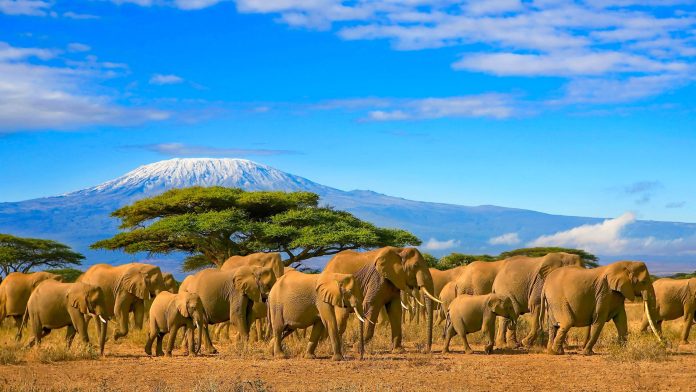The African Continent is positioned to the south of Southern Europe, bordered by the Atlantic Ocean in the west, the Indian Ocean in the east, and Antarctica to the south. To its north, Africa is separated from the Mediterranean, and in the northeast, it’s distinct from Asia by the Suez Canal. Along its eastern borders, the continent meets the Red Sea and the Indian Ocean, while the Indian Ocean and Atlantic Ocean encircle its southern and western edges, respectively. The Strait of Gibraltar in the northwest divides Africa from Europe. Notable points include Tunisia’s Cape Blanc in the north and South Africa’s Cape Agulhas in the south, with Somalia’s Cape Ras Hafun in the east and Senegal’s Cape Verde in the west. The continent stretches 8,025 km in length and 7,416 km in width.
In terms of size and population, Africa ranks second only to Asia. It hosts 14 percent of the global population, covering 20.4 percent of the Earth’s land. With a population density of 29.3 people per square kilometer, it stands third after Asia and Europe. Lagos in Nigeria is noted for its high population density. Mount Kilimanjaro in Tanzania, rising 5,895 meters, is the continent’s highest point, while Lake Assal in Djibouti, at 155 meters below sea level, is the lowest.
Africa is home to numerous national parks, offering unique safari experiences that bring visitors up close with its wild nature. Some of the most frequented parks include Tanzania’s Serengeti National Park, Mozambique’s Bazaruto National Park, Botswana’s Chobe National Park, and Algeria’s Ahaggar National Park. The East African Rift, a product of two diverging fault lines, features the Rift Valley and surrounding volcanoes. Prominent volcanoes in the region include Kilimanjaro, Kenya, and Meru Mountains.
The continent’s name “Africa” originates from the Roman designation “Afri” or “Africani,” first used during the Punic Wars for the tribes around Carthage. Previously, Greeks referred to it as the “Land of Lebular.”
Africa’s vast size leads to diverse climatic conditions, from steppes to rainforests and large deserts. Over 2,000 languages are spoken here, making it the most linguistically diverse continent. Post-colonialism, most African countries adopted official languages like English, French, Portuguese, Italian, and Arabic. The continent’s religious beliefs are equally varied, with Islam and Christianity being the most prevalent alongside indigenous beliefs.




